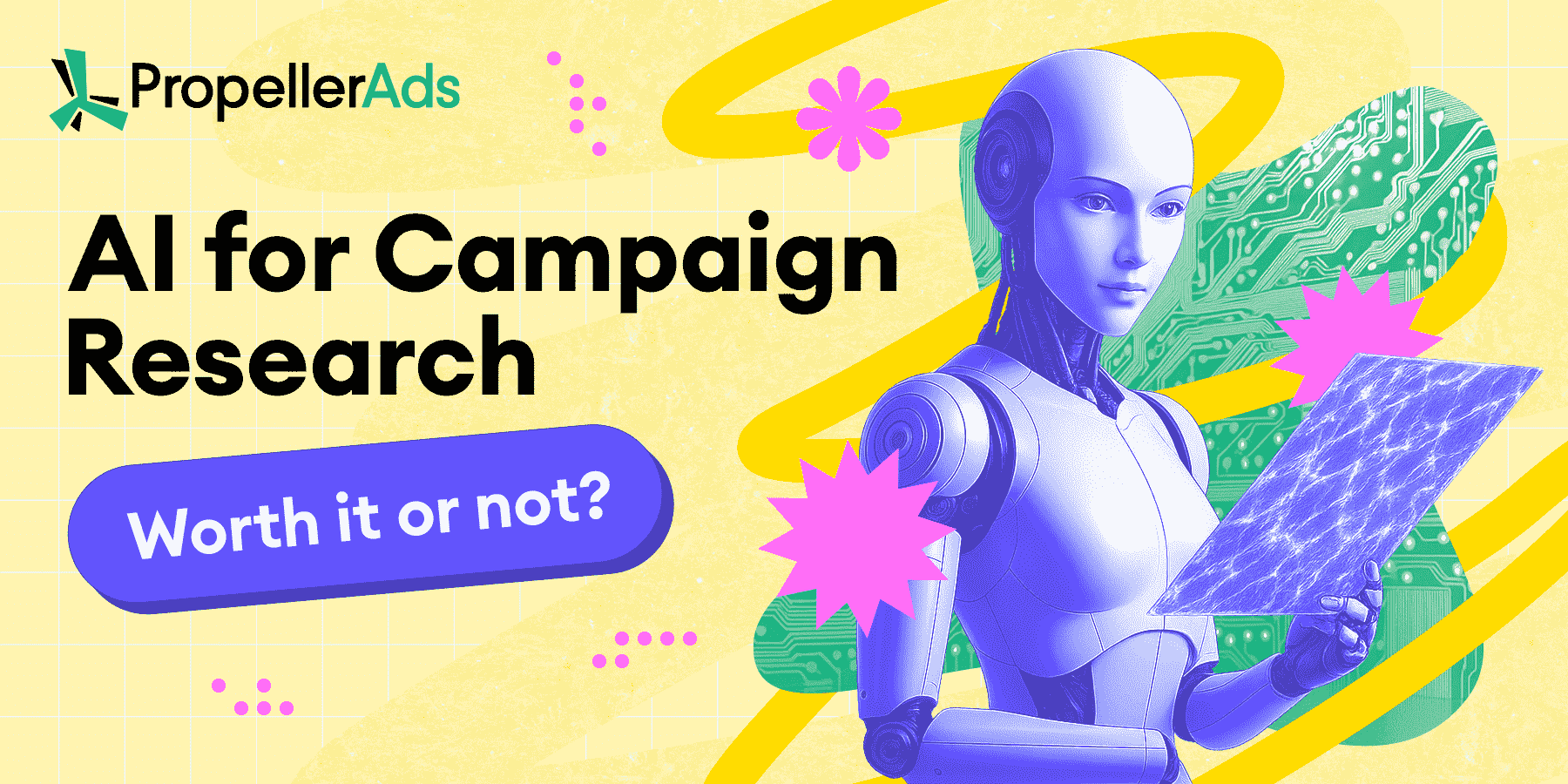AI Killed These Verticals… Or Maybe Not? We Checked

When was the last time you actually Googled something? Be honest, you probably just opened ChatGPT instead. At least, students definitely do it: according to ScienceDirect, more than 70% of students worldwide use it for their homework, essays, and research.
Meanwhile, the ‘essay niche’ has been a goldmine for affiliates, with evident peaks during exam seasons and loyal students willing to pay for every paper. It was one of those so-called evergreen verticals: stable, highly converting, and easy to scale through SEO or native traffic.
Then came November 2022. The release of ChatGPT turned it upside down and even the laziest student could now simply type ‘Write me an essay’ to get a free and pretty tolerable answer within seconds.
Later, other content-relying verticals like SEO writing, transcription, translations, and even social and relationship copywriting began to lose traction. But how bad is it really? Let’s take a closer look at the numbers, the trends, and what actually happened to these ‘dead’ verticals.
The First Victim: Essay Niche
Dmitry Leiko, the CEO of Lejme, a performance SEO agency, shared a pretty disturbing case study in his Telegram channel. Lejme ran a content site that attracted SEO traffic from essay-related searches and redirected students to partner platforms where they could order a paper.
In 2022, the results from the site were the following:
- Clicks: 418,441
- Orders: 2,035
- Commission: $320,000+
In 2023, with nearly the same traffic volume (402,723 clicks), the results have dramatically changed:
- Orders: 287
- Conversion rate dropped 7×
Dmitry:
We used to get 10–15 essay orders per day during the season. Now, it’s a big luck if we get the same amount in a month. After ChatGPT’s launch, CTR and CR on essay-service landing pages dropped by 15–25%, and Google Trends for ‘write my essay for me’ and ‘essay writer online’ flattened for the first time in a decade.
In spring-summer season 2023, when GPT-4 and Bing Copilot were released, students realized AI could write good enough for 70–80% of academic tasks. Universities hadn’t yet adapted, so penalties for such works were rare, and conversions hit their lowest point, with many essay platforms reporting 30–40% fewer orders compared to 2022.
Who Else?
The essay niche isn’t the only one under pressure. Here’s who else, according to Dmitry, might be affected next.
- Everything related to content creation. As Dmitry puts it, AI models already generate content better than 95% of human copywriters. Although they still need fact-checking and proofreading, they’ve already automated most low- and mid-tier writing tasks.
- Affiliate marketing as a whole. LLM platforms are now attracting more direct user traffic, and Google’s AI Overviews are turning search results into zero-click experiences. It means there’s a general traffic drop across many niches – especially for informational queries.
It can specifically affect Proxy/VPN offers, SaaS products (like YouTube promotion tools), and iGaming to some extent. These niches rely heavily on search-based and content traffic: comparison articles, ‘top tools’ lists, and reviews that used to drive affiliate clicks. Now, AI summaries and chat results give users instant answers, cutting off this traffic.
Still, there hasn’t been such a dramatic traffic drop anywhere like with essay or content-writing verticals. What’s more, some marketers are much more optimistic about that: for example, Serge Abramov, a media buyer, says,
‘I wouldn’t call any niches dead just yet – in my experience, everything looks more or less the same, and people are adapting faster than ever. Everyone’s testing, automating, and plugging AI into what already works. In other words, instead of seeing AI as a threat, most teams just use it to make their work faster and easier.’
What’s Next?
According to Dmitry, after the initial chaos, the market entered a rationalization phase. AI detectors like GPTZero and Copyleaks have prompted many students to return to hybrid workflows, combining ChatGPT results with human editing.
Dmitry:
Essay companies, just like freelancers adapted fast offering new services like ‘AI + Human Proofreading’, ‘AI-Safe Essays,’ and ‘Turnitin Bypass’ packages. As a result, the niche stabilized at around 60–70% of its former turnover. Also, demand for complex works like dissertations and research papers stayed relatively strong – at least until new research-focused models (like Perplexity or GPT-5) entered the scene.
To sum up: AI definitely changed the rules and the market. However, it’s hardly the end of affiliate marketing or many of its verticals.
Join our Telegram for more insights and share your ideas with fellow-affiliates!


